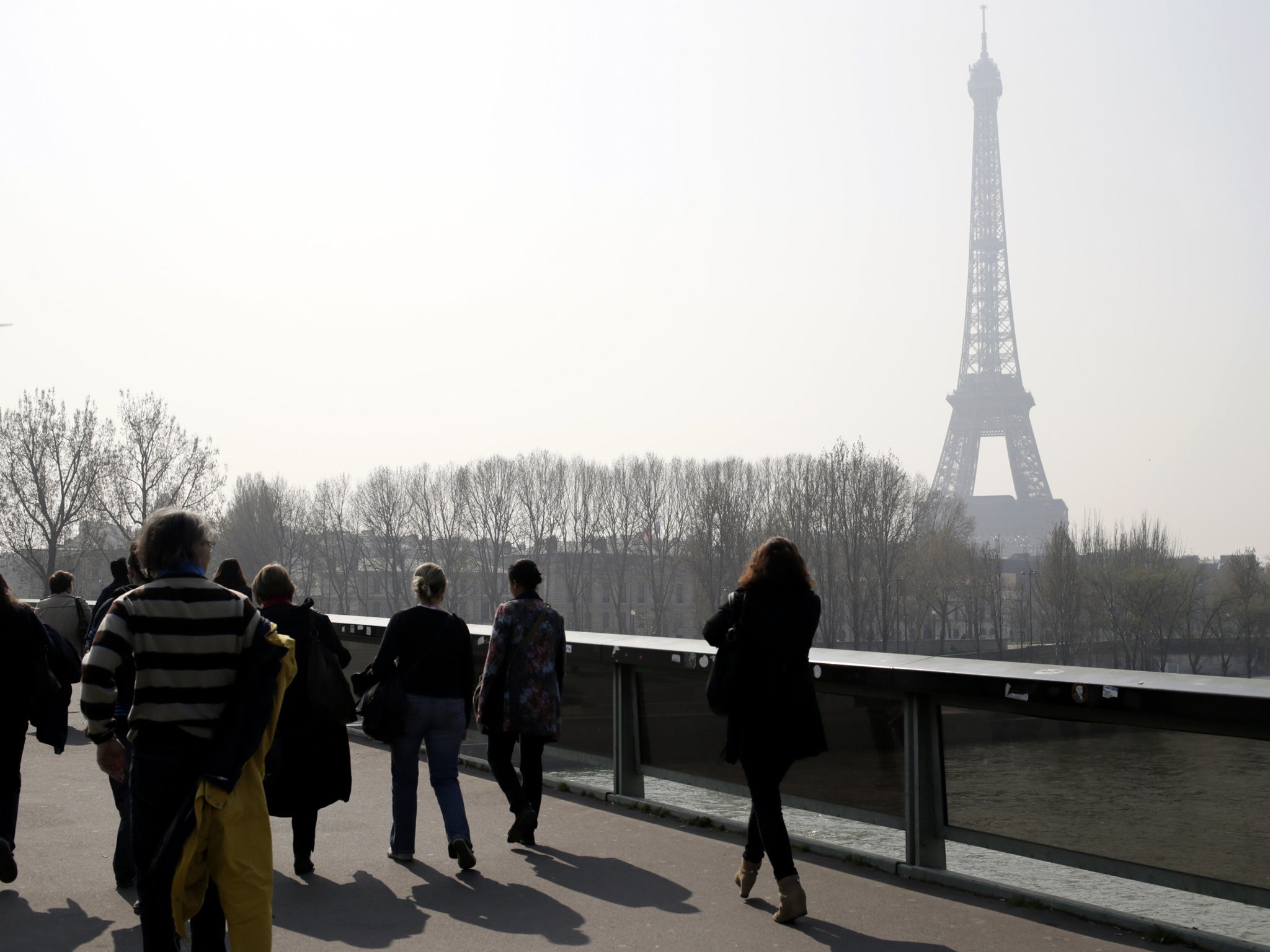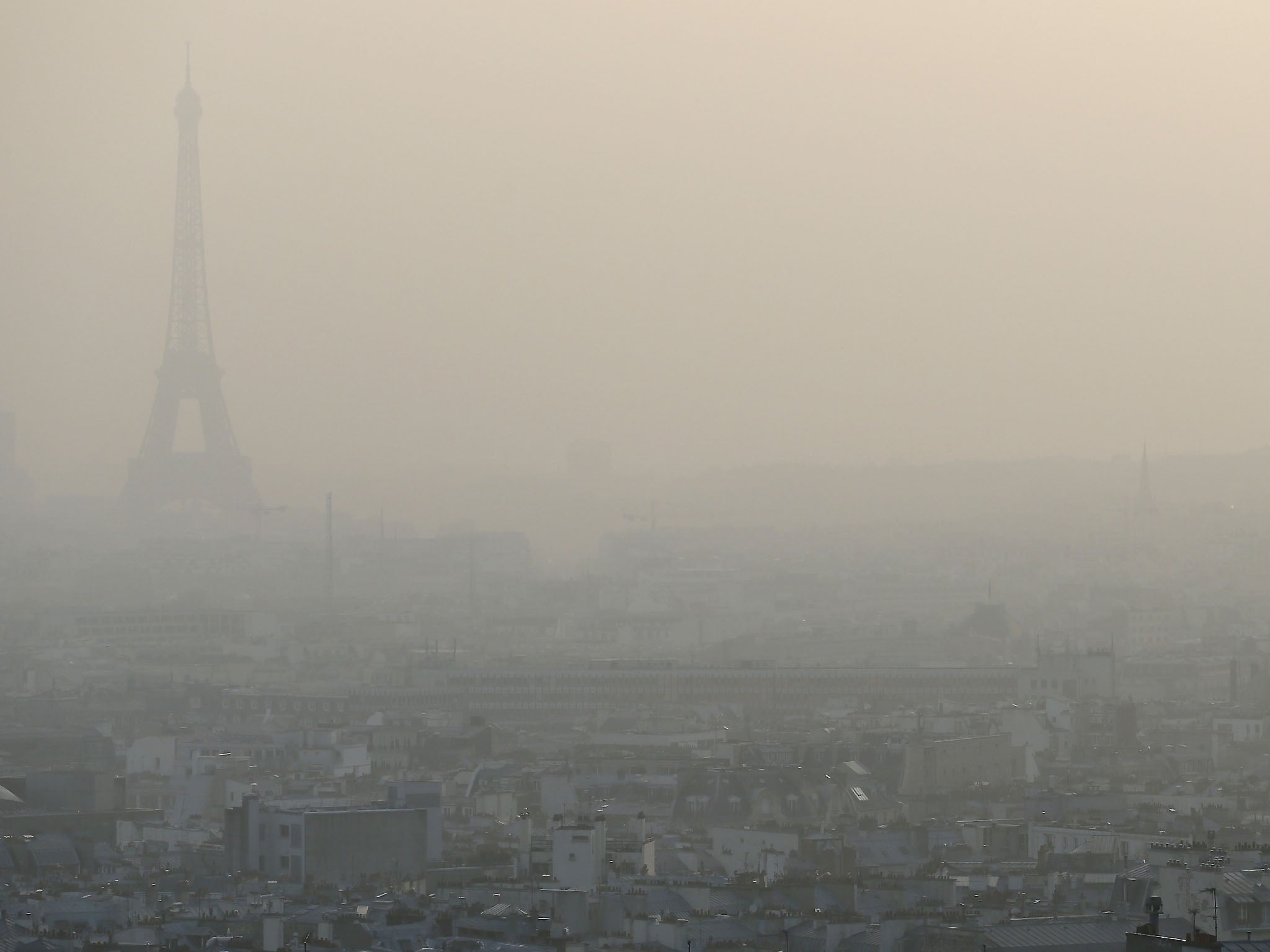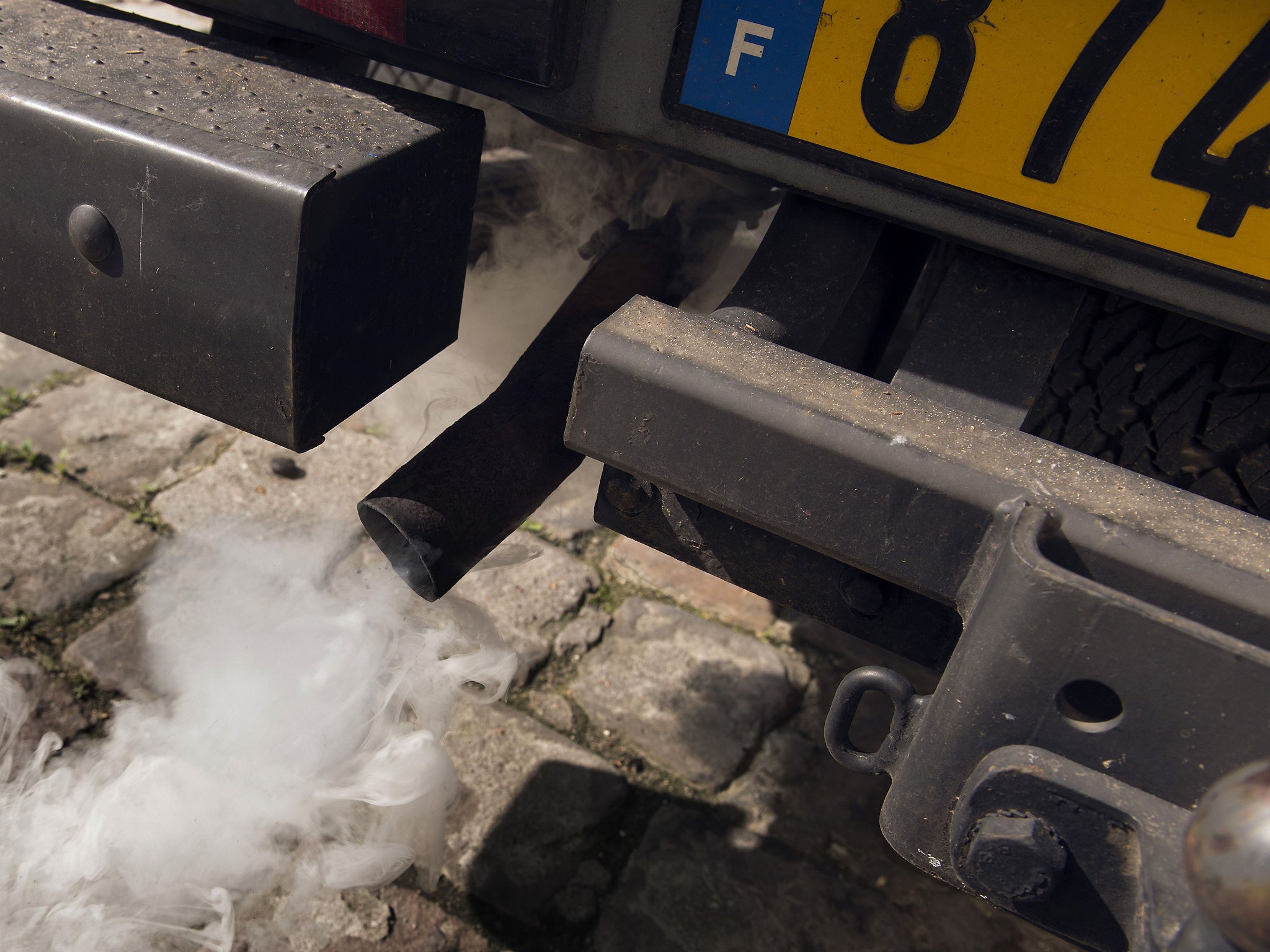A warning to all Parisians: Breathing can damage your health – and could possibly kill you
A mixture of good weather and stubbornly bad public policy leaves French capital in grip of worst atmospheric pollution for seven years - with public transport running for free

Avoid going outdoors in the early morning if you're in Paris. Avoid going out in the late afternoon. If you are over 65, or under five, you should stay indoors.
Do not drive. If you have to drive, drive slowly. Cancel, or reduce, all "intensive sporting activity". (Question: does that include Saturday evening's France-Ireland rugby international?)
An invisible but potentially lethal enemy assailed Paris and most of northern France on Friday - the air.
Paris is in the grip of its worst atmospheric pollution for seven years, caused by a mixture of good weather and stubbornly bad public policy.
A run of unseasonably warm, windless days and cold clear nights has clamped a lid of warm air over northern France. Under that lid, minuscule particles of pollution - partly generated by France's long love-affair with the diesel-powered car - have accumulated to dangerous levels.

The level of official "pollution alert" - 80 microgrammes of tiny particles for every cubic metre of air - has been exceeded each day since Wednesday in 30 départements (counties) across northern France.
In an attempt to keep traffic to a minimum, all public transport has been declared free until Sunday in Paris, Rouen and Caen Even the Velib', the Parisian help-yourself, short-term-hire bikes which fathered the Boris Bikes in London, have been declared free.
Is that sensible? In the midst of one of the most intense and prolonged pollution scares northern France has ever seen, is cycling still good for your health?
With the naked eye, it was difficult yesterday to see what all the fuss was about. Paris was basking for the send week in a row in bright, near-summer weather. The daffodils were gleaming in the Tuileries gardens. Women were wearing summer dresses.
If you looked just above the roofs of the buildings, however, there was a fat, smudgy, grey layer before the sky shaded into pale blue. The Eiffel Tower, and the skyscrapers in the La Défense office ghetto west of the city, were cloaked in a faint, grey-yellow haze.
France is especially vulnerable to this kind of pollution because it is 60 per cent dependent on diesel cars. In the 1960s, French government and industry made a strategic decision that diesel engines were less polluting and would gradually supersede petrol.

The French car giants, Renault and Peugeot-Citroen invested heavily in diesel engines. Diesel fuel was taxed less heavily than petrol - and still is.
For nearly two decades France has been aware that this was a terrible mistake. Diesel engines are more polluting, not less. Fumes from diesel cars, as well as industrial emissions and agricultural fertilisers, are blamed for increasing the micro-particles in the French atmosphere to potentially dangerous levels.
Successive governments have lacked the courage to steer the French car-makers away from diesel engines or to increase taxes on the diesel fuel which is used by two out of three motorists (and voters).
According to on study, there are 40,000 premature or unnecessary deaths in France each year because of the high level of atmospheric pollution. The European Commission has brought a legal action against France in the European Court of Justice for its failure to respect EU anti-pollution laws.
Corinne Lepage, environment minister from 1995 to 1997, now an independent ecological activist, said: "There has never been the political will to attack the problem. I tried to set the ball rolling with a clean air law in December 1996, which put into effect European clean air directives."
"That law has never been applied. Governments of both Left and Right have been scared of the car industry and motorists' lobbies."
Join our commenting forum
Join thought-provoking conversations, follow other Independent readers and see their replies
Comments